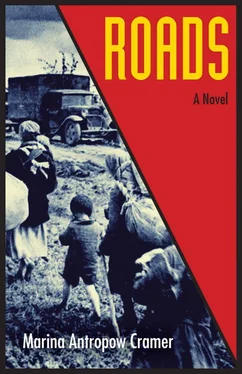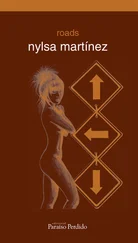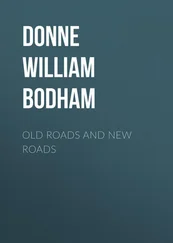Thinking about it later, she told herself, Carmen dies with no hope of redemption because she is wicked and self-indulgent, unlike the virtuous Micaela, who is faithful and good. And dull. Secretly, Zoya cherished the high drama of Carmen’s story, her valiant death at the hands of the jealous Don José a fitting testament to the honesty of her private outlaw creed. Would she, Zoya, be capable of such intense integrity? It was a dangerous, troubling question, implying layers of interpretation behind the superficial concepts of right and wrong she had so far accepted on faith. She pushed it out of her mind.
And what was the Orthodox church service if not spectacle? The ornate vestments, gold vessels encrusted with precious stones, candlelight and incense; the chanting in strictly ordained cadences; the beautiful singing, the call-and-response between priest and choir—all in observance of rituals hundreds of years old that engaged all the senses while requiring little active participation. You just had to be there and pay attention. Take heed. Absorb what you had witnessed in your own way.
Back home in Yalta, she finished the tenth grade at eighteen and received her teaching certificate. She taught first grade and loved it. She lived with her parents, went to church, observed days of Lent and fasting and, with a few colleagues from school, attended every opera and play that opened in the city. She gave most of her modest salary to her parents, and, except for inexpensive balcony seats, spent almost none on things for herself.
It was this, embracing theater and recognizing the vital part that music and the performing arts had come to play in her life, that finally turned her away from dreams of the cloistered life. At sixteen, she had stopped wearing the head scarf, except in church. She would be good. She would not drink or gamble or use profane language. She would not know a man before marriage. But she would live in the world, and she would go to the opera whenever possible.
___
Vadim, a postal clerk six years older than Zoya, had recently arrived in Yalta to serve as assistant to the postmaster. A distant cousin of one of her theater friends, he joined their circle, and soon focused his attention on her.
They made an incongruous couple. She was diminutive, fine-boned, with straight black hair she wore braided and unadorned. Her wardrobe consisted of simple dresses in plain colors: blue, gray, brown, with lace collars she crocheted herself, and a single cameo brooch she saved for special occasions. Vadim was tall, sandy-haired, blue-eyed. At twenty-five he was still gangly but was beginning to show the first signs of future corpulence: a little slackening of the chin, some softening around the middle.
They met at a concert performance of Tchaikovsky opera arias and songs. At intermission, both stood aside until the crush of people at the buffet had eased, rather than fight their way to the front of the hungry throng.
To her own surprise, Zoya spoke first, sensing the young man’s discomfort as a stranger in their midst. “Are you enjoying the performance, Vadim…” She hesitated, not knowing his father’s name.
“Nikitich,” he supplied. “But please just call me Vadim. Patronymics are for old folks and college professors.” Smiling, he steered her toward an opening in the crowd around the table. “Come, or we will get no pirozhki .”
“I suppose we are old-fashioned here in the south. Now that I am finally old enough to be called Stepanovna, the customs seem to be changing. What is the filling?” she addressed the kerchiefed woman behind the table, pointing to the last few buns in the basket. “Mushroom and onion? Yes, please.”
“Why so particular?” Vadim paid, over her protest, and they took their punch and pastries toward the mezzanine railing.
“It’s still Lent,” she explained. “I should not even be here, at the theater. But at least I can refrain from eating meat.”
“Surely Tchaikovsky is good for the soul. And yes, I am enjoying the performance, but I find these disembodied arias a frustration. In my head, the music continues to the next scene, while on the stage, they are already singing something completely different. ‘From another opera,’ as my father used to say whenever I tried to change the subject in one of our discussions.”
She smiled at the familiar expression. “But the concert songs are lovely, so lyrical—” Zoya broke off, turning to greet some friends, just as the light flashed for the beginning of the program’s second half, and they returned to their seats.
I like this young man , she thought. He seemed different from the other men she knew, with none of the austerity of her distant father, or the benign severity of Father Yefim, whose stern words, softened by the kindness in his eyes, had been falling into her child’s heart all her life. Vadim had a self-confidence that was new to her, an air of developing authority that seemed to take its strength from some inner source, some intellectual center quite unlike her own emotional compass.
When she got to know him better, she learned that he did not sing or play the guitar, like some of her other friends, he did not joke and he did not drink. She came to admire the way his face lit up when the conversation turned to serious matters—questions of philosophy or history, or the bewildering recent events that frightened her into silence because she did not understand them.
“Change is coming,” Vadim said, his voice firm and self-assured. “We are that change.” He is the sturdy oak to my bending willow , she thought, echoing the words of a folk song. She did not know where he was going, but feared getting left behind.
“What do you see in me?” she asked when his courteous attentions crossed the line into undeniable courtship. “I am such a mouse next to your lively friends. I have nothing to say that would interest them.”
“Even a mouse has a worldview. Yours may encompass only this apartment, but within it there is certainty and peace. I love your quiet charm, and the glimpses of passion you reveal at the opera, like sunlight glinting through cool summer foliage.” He stopped, blushed deeply. “I don’t know what came over me. I don’t usually wax poetic. But that’s exactly what I mean.”
“My charm?” Zoya colored slightly, genuinely perplexed.
“Yes. You are so serene. My friends may shout their opinions, convinced they see the truth at last, the solution to our country’s difficult problems. You bring calm into the room. Into my life.” As if mindful of her modesty, he did not say, And you are beautiful. I love looking at you.
When the revolution came, in 1917, it left her convictions relatively untouched. She had never delved into political matters; the Tsarist system had given her enough food and education, respectable work, access to refined entertainment and to sustaining religious practice. She did not understand, when she read about workers’ demands for bread, or peasants clamoring for land, who were these workers, these peasants? Russia was a vast country, rich in land and resources, as she had learned at school, and taught her pupils. Wasn’t there enough for everyone?
Not so, Vadim, now her husband, explained. “We can only be happy if the least fortunate among us bear their burden in silence, to paraphrase Anton Chekhov,” he said solemnly over their morning tea. “This can’t go on. Soldiers who suffer brutal punishment and starvation rations instead of pay are banding with oppressed factory workers, joining our infamously ignorant peasants. Their demand for reform can no longer be ignored. It’s time for change, my dear.” He kissed the top of her head and patted her shoulder.
“He treats me like a child,” Zoya said aloud when Vadim had left for work, her resentment just short of anger. “Well, when it comes to politics and change , I suppose I am.”
Читать дальше











